7. Satire in Song.
This class is arranged in four sections, by geography and/or period: Continental Europe, mid-century Britain, America at the end
of the century, and Britain again from a similar time to the present. The one-minute montages at the beginning of each section
attempt to explore the relationship between the songs and the Zeitgeist out of which they were born. But the relationship is seldom
an obvious one. Songs that engage directly with political or social conditions are rarely comic, and most topical songwriters take
an oblique angle on their times—as Monty Python has it, "Always look on the bright side of life."
So the focus is on standalone cabaret songs that are both relevant and funny. But there are certain exceptions: a few songs from
stage works or films, some examples of political engagement that are deadly serious, a few fun songs with no social purpose
whatever and, near the end, one song by a featured group that is neither satirical nor comic, but all too painfully real. The
eight artists or groups we shall sample in this class are: Bertolt Brecht and Kurt Weill, Jaques Brel, Noël Coward, Michael Flanders
and Donald Swann, Tom Lehrer, Weird Al Yankovic, Monty Python's Flying Circus, and Fascinating Aïda. A few other musicians may be
included in passing. rb.
The script, videos, and images will be posted immediately after class.
VIDEO LINKS
Everything shown in class is available on YouTube at the links below, although mostly without the texts that I added by hand.
I uploaded the four animated section titles here. I have also
included additional songs by most of the featured artists, for the reasons given briefly after each. All additions are
*asterisked.
Note that I attached a WARNING label to several of the more recent songs. This is because, as I
explained in class, many modern performers have found the need to include four-letter words in their lyrics. In general,
I have arranged each group with the songs most likely to offend at the end. The final lines of Fascinating
Aïda's "Tory MP" go a significant step beyond the punchlines of "So sorry, Scotland," which I did play. Dillie Keane's
"Dogging"—her most famous song—gets much of its humor from a grandmother describing a sexual activity that most people of her
generation would have to look up on Google!
In this connection, I include an entire section on artists whom I considered for the class but ultimately rejected, though not
always on grounds of obscenity. Though being opposed to US intervention in the Vietnam War, the Smothers
Brothers generally kept their very funny songs clear of political reference; this may be the only exception. Australian
pianist Tim Minchin generally finds humor in music itself, but the subject of "Thank you,
God" seemed especially relevant, given the number of other anti-religious songs in the class. British entertainer
Pam Wood seems to focus on women who do not go in for sex; both these songs are quite funny, but I
did not feel there was enough range to justify making her a featured artist. The familiar Steve Martin
seems to have made a late career as a bluegrass musician; his "Atheists don't have no songs" is yet another number with an anti-religious
theme, while the non-satirical "Caroline" is quite simply infectious. The New Zealand group The Flight of the
Conchords have a number of songs that check our boxes in subject, but all have a certain crudeness that prevented me from
including them. By contrast, American solo artist Bo Burnham is personable and charming, making him a
very strong contender, but most of his songs resort to questionable language. Still, I managed to find two of the least problematic.
rb.
| A. OUT OF THE RUINS |
| |
Threepenny Opera |
|
* Futility of Human Aspiration
(sung by Brecht)
* Cannon Song
(Raul Julia, Bill Nighy, film 1989)
* — the same from the original film
* What keeps a man alive?
(Tom Waits)
* Kleine Dreigroschenmusik
(used in section title)
|
| |
Jacques Brel |
|
* Jaurès
* Les bourgeois
* Vesoul
(cover by Pomplamoose, 2022)
* — Jaques Brel original
(audio with translation)
|
| B. SOMETHING TO DO WITH SPRING |
| |
Noël Coward |
|
* Something to do with Spring
(used in section title)
* Mad Dogs and Englishmen
(Noël Coward, 1955)
* — cover by Cary Grant, 1939
(with scenes from Grant movies)
* There are bad times just around the corner
(graphics with text)
* That is the end of the News
(cover by Michael Law, 2021)
* What will happen to the tots?
(Noël Coward, 1955)
* Nina from Argentina
(not satirical, but marvelously performed!)
|
| |
Flanders and Swann |
|
* Anthem of Patriotic Prejudice
* All Gall
* The Gnu
* Hippopotamus Song
(their most famous animal song)
* The Wompom
(Sheer nonsense, but brilliantly performed!)
|
| C. THE AMERICAN ESSENCE |
| |
Paul Simon |
|
* American Tune
(used in section title)
* Bridge over troubled water
(his classic with Art Garfunkel)
|
| |
Tom Lehrer |
|
* Wernher von Braun
* Irish Ballad
* The Vatican Rag
* The New Math
(graphic video)
|
| |
Weird Al Yankovic |
|
* Amish Paradise
* — Coolio: Gangsta's Paradise
(source of WAY's parody)
* White and Nerdy
* Party in the CIA
(graphic video)
* — Miley Cyrus: Party in the USA
(source of WAY's parody)
* Word Crimes
(graphic video on grammar and syntax)
|
| D. BRIGHT SIDE, DARK SIDE |
| |
Monty Python |
|
* The Bright Side of Life
(from Life of Brian; warning: depicts crucifixion)
* Every sperm is sacred
(from The Meaning of Life)
* The Lumberjack Song
|
| |
Fascinating Aïda |
|
* Down with the kids
(complete song)
* I watched two people fall in love
(Liza Pulman, complete song)
* So sorry, Scotland
(warning—though already played in class)
* A Tory MP
(warning; wonderful satire, but last line may offend)
* Dogging
(warning; her most notorious song!)
|
| SOME OTHER ARTISTS |
| |
Smothers Brothers |
|
* Draft Dodger Rag
(why their show was canceled!)
|
| |
Tim Minchin |
|
* Thank you, God
|
| |
Pam Wood |
|
* The Ballad of Barry and Freda
* The Pam Song
(warning—but only mildly so)
|
| |
Steve Martin |
|
* Atheists don't have no songs
(with Steep Canyon Rangers)
* Caroline
(with Steep Canyon Rangers)
|
| |
Flight of the Conchords |
|
* The most beautiful girl in the room
(warning—but only mildly so)
* Foux da fa fa
(all in faux French; warning!)
* Hiphoppopotamus
(quasi-rap; warning!)
|
| |
Bo Burnham |
|
* Welcome to the Internet
* How the world works
* Lower your expectations
(warning!)
|
| |
|
|
|
|
|
| IMAGES |
The thumbnails below cover the slides shown in class, though
there may be a few small discrepancies. Click the thumbnail to see a larger image.
Click on the right
or left of the larger picture to go forward or back, or outside it to close. |
 | |
 | |
 | |
 | |
 | |
 | |
 | |
 | |
 | |
 | |
 | |
 | |
 | |
 | |
 | |
 | |
 | |
 | |
 | |
 | |
 | |
 | |
 | |
 | |
 | |
 | |
 | |
 | |
 | |
 | |
 | |
 | |
 | |
Here are brief bios of the composers and writers considered in the class, listed in order of birth.
 |
Bertolt Brecht, 1898–1956. German dramatist.
Brecht's importance to musical theater rests mainly on his collaborations with Kurt Weill between 1928 and 1932: The Threepenny Opera, Happy End, Mahagonny, and The Seven Deadly Sins. A Communist, he fled the Nazi régime, but returned after the War to found the celebrated Berliner Ensemble in East Berlin.
|
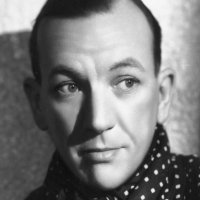 |
Noël Coward, 1899–1973. British playwright, actor, and composer.
Coward established himself early on as an actor and prolific author of light plays such as Private Lives (1929) and Blithe Spirit (1941). During WW2, he worked for British intelligence. When his stage career resumed, a large part of it was in revues and, latterly, solo cabaret performances, trading on his well-deserved reputation as a wit and impeccable crafter of comic songs.
|
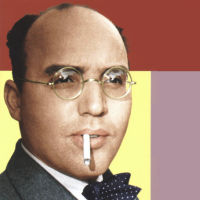 |
Kurt Weill, 1900–50. German American composer.
Weill became famous in Berlin for his collaborations with Bertolt Brecht, among them The Threepenny Opera (1928, a satirical adaptation of John Gay's The Beggar's Opera) and the political opera The Rise and Fall of the City of Mahagonny (1930). Fleeing Nazi Germany, he eventually settled in New York in 1935, finding new fame on Broadway, but also writing more operatic fare such as Street Scene (1946, with Langston Hughes).
|
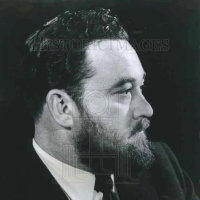 |
Michael Flanders, 1922–75. British actor and songwriter.
His appearances in various productions at Oxford seemed to destine Flanders for a great career as an actor, but War intervened. While serving with the Royal Navy, he contracted polio, and spent the rest of his life in a wheelchair. But this did not stop a second career as a writer for the BBC and theater—nor a third one, teamed up with composer Donald Swann to perform some of the many songs they had written together, beginning when both were pupils at Westminster School.
|
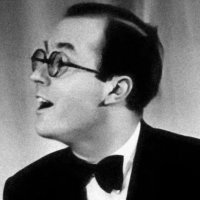 |
Donald Swann, 1923–94. British composer.
Meeting up in 1948 with his former schoolfriend Michael Flanders, Swann began collaborating on comic songs. These were performed first by other artists and later by the collaborators themselves in a long-running revue called At the Drop of a Hat (1956). That and its sucessor played all over the world, becoming a frame of reference for an entire generation. Swann continued composing after Flanders' death, mainly for plays, and performing both solo and with his own group of singers.
|
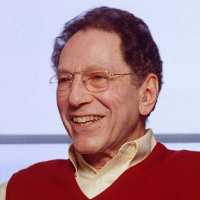 |
Tom Lehrer, 1928–2025. American songwriter and mathematician.
Lehrer graduated in mathematics from Harvard in 1946, and later taught there and other prestigious schools. All this time, however, he was writing and performing songs, generally on contemporary or satirical subjects. For a while in the 1950s and 1960s, this activity blossomed into his main career, as he recorded and performed albums of his compositions that became best-sellers.
|
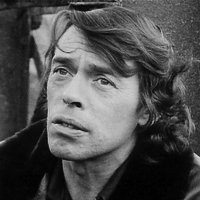 |
Jacques Brel, 1929–78. Belgian singer-songwriter.
With little academic training and a dead-end job, Brel began performing locally in Belgium. By the mid-1950s, however, his songs were being picked up by other artists and he began touring in France and overseas, rapidly becoming famous as the new voice of the French chanson. The pressure became too much, and he gave his final live performance in 1967, thereafter devoting himself to films, as an actor and later director. Meanwhile, his music continued to spread, giving rise for instance to the 1968 American musical Jacques Brel is Alive and Well and Living in Paris. He died in the Maquesas Islands of lung cancer.
|
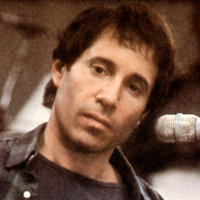 |
Paul Simon, 1941– . American singer-songwriter.
Paul Simon first came to attention through his partnership with Art Garfunkel, whom he met when both were 11; their partnership lasted until 1970, with songs like "Bridge over troubled water" becoming an indelible part of American counterculture. On his own, Simon continued to enjoy success with albums like Graceland (1987). Whether as a singer or guitarist, he has blazed an original path, for example bringing influences from Africa, Brazil, and other world musics into the American scene
|
 |
Adèle Anderson, 1952– . British singer-songwriter.
Anderson is best known as the longest-serving member of the trio Fascinating Aïda, joining founder Dillie Keane in 1984; with Keane as composer, she has written almost all the group's material. She has also had a successful though less high-profile career as an actor. More recently, she revealed herself as a transgender woman, and has been active in causes promoting understanding of gender change.
|
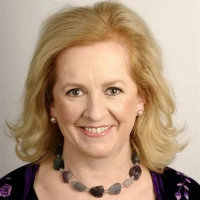 |
Dillie Keane, 1952– . British singer-songwriter.
After being expelled from high school, Keane studied music in Dublin, then quit that to study acting in London. With such a start, she has gone her own way as a stage actor, and composer of cabaret songs that she herself performed, first solo, then with the changing members of the group Fascinating Aïda, which she founded in 1983, famous for its flaunting of conventional taboos.
|
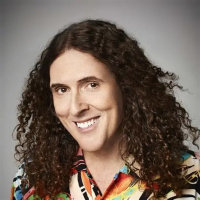 |
"Weird Al" Yankovic, 1959– . American singer-songwriter.
Alfred Michael Yankovic began performing his comic songs at the age of 16, and continued in the public eye for over three decades. His longevity in a genre noted mainly for one-hit wonders derives in part from his willingness to throw himself into the zany unpredictability of his "Weird Al" persona, his acute choice of material to parody (nowadays always with the consent of the original artist), and his development of video as an integral part of the product.
|












































